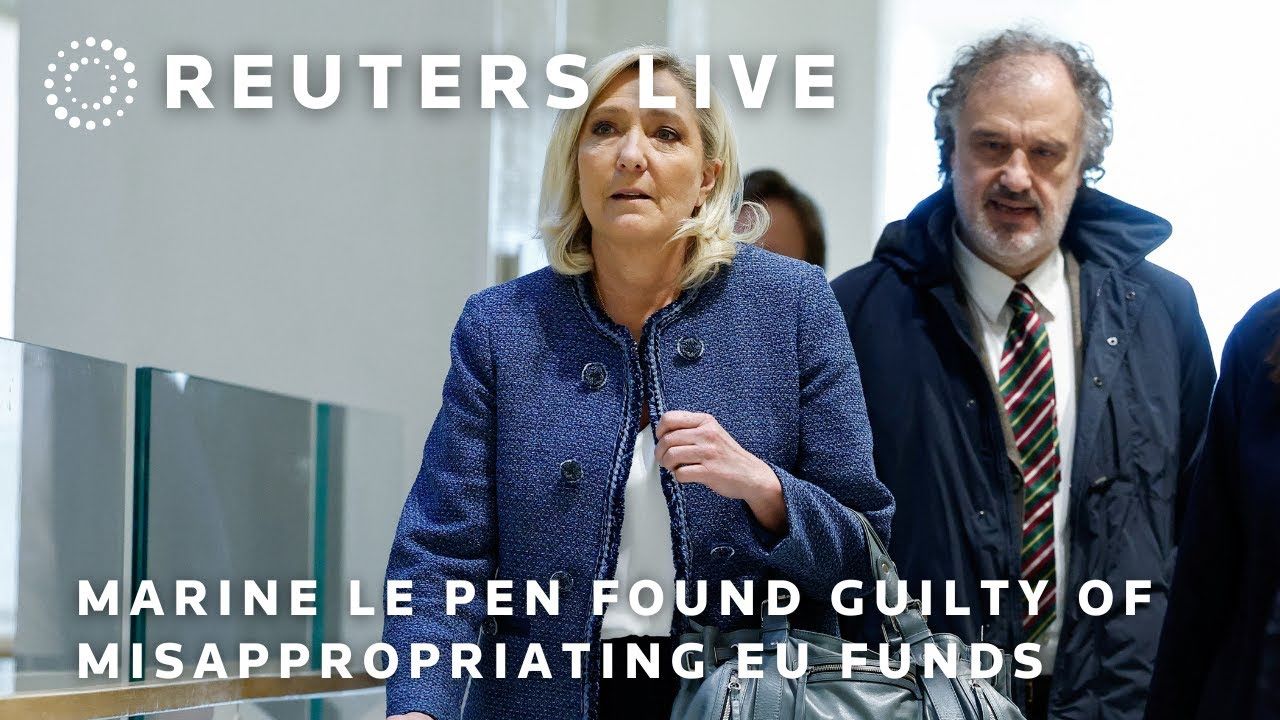
Marine Le Pen Sentenced for Misappropriation of EU Funds
The Paris Correctional Court imposes a four-year prison sentence and a five-year ban on electoral eligibility for the National Rally leader.
Marine Le Pen, leader of France's National Rally (RN), was sentenced by the Paris Correctional Court on March 31, 2025, to four years in prison, of which two years are to be served under electronic monitoring.
Additionally, she received a five-year ban on holding public office, which will take effect immediately.
Le Pen, along with eight other Members of the European Parliament from the RN, was found guilty of misappropriating public funds related to the European Parliament's assistant program.
The conviction arises from allegations that they unlawfully used European Union funds to pay for the salaries of individuals who were not performing official parliamentary duties.
The court ruling represents a significant legal and political milestone in France, as it raises questions about the interplay between judicial actions and political figures.
The sentence has triggered a range of reactions within the political landscape.
While some constituents in Le Pen's stronghold have expressed disapproval of the ruling, viewing it as politically motivated, others have called for accountability.
The National Rally remains one of the largest political parties in France, and its response to the verdict could reshape its future strategies.
Le Pen has historically been a polarizing figure in French politics, and her leadership and policies have continued to draw both fervent support and vehement opposition.
The immediate implementation of her ineligibility is expected to impact the party’s preparations for the upcoming 2027 presidential elections, where she was anticipated to be a prominent candidate from the right.
The implications of this ruling may extend beyond national politics, as international observers analyze the dynamics of legal accountability and political agency in a major European democracy.
With the parliamentary elections approaching, the situation remains fluid, warranting further observation of both public sentiment and potential legal appeals by the convicted politicians.
Additionally, she received a five-year ban on holding public office, which will take effect immediately.
Le Pen, along with eight other Members of the European Parliament from the RN, was found guilty of misappropriating public funds related to the European Parliament's assistant program.
The conviction arises from allegations that they unlawfully used European Union funds to pay for the salaries of individuals who were not performing official parliamentary duties.
The court ruling represents a significant legal and political milestone in France, as it raises questions about the interplay between judicial actions and political figures.
The sentence has triggered a range of reactions within the political landscape.
While some constituents in Le Pen's stronghold have expressed disapproval of the ruling, viewing it as politically motivated, others have called for accountability.
The National Rally remains one of the largest political parties in France, and its response to the verdict could reshape its future strategies.
Le Pen has historically been a polarizing figure in French politics, and her leadership and policies have continued to draw both fervent support and vehement opposition.
The immediate implementation of her ineligibility is expected to impact the party’s preparations for the upcoming 2027 presidential elections, where she was anticipated to be a prominent candidate from the right.
The implications of this ruling may extend beyond national politics, as international observers analyze the dynamics of legal accountability and political agency in a major European democracy.
With the parliamentary elections approaching, the situation remains fluid, warranting further observation of both public sentiment and potential legal appeals by the convicted politicians.











